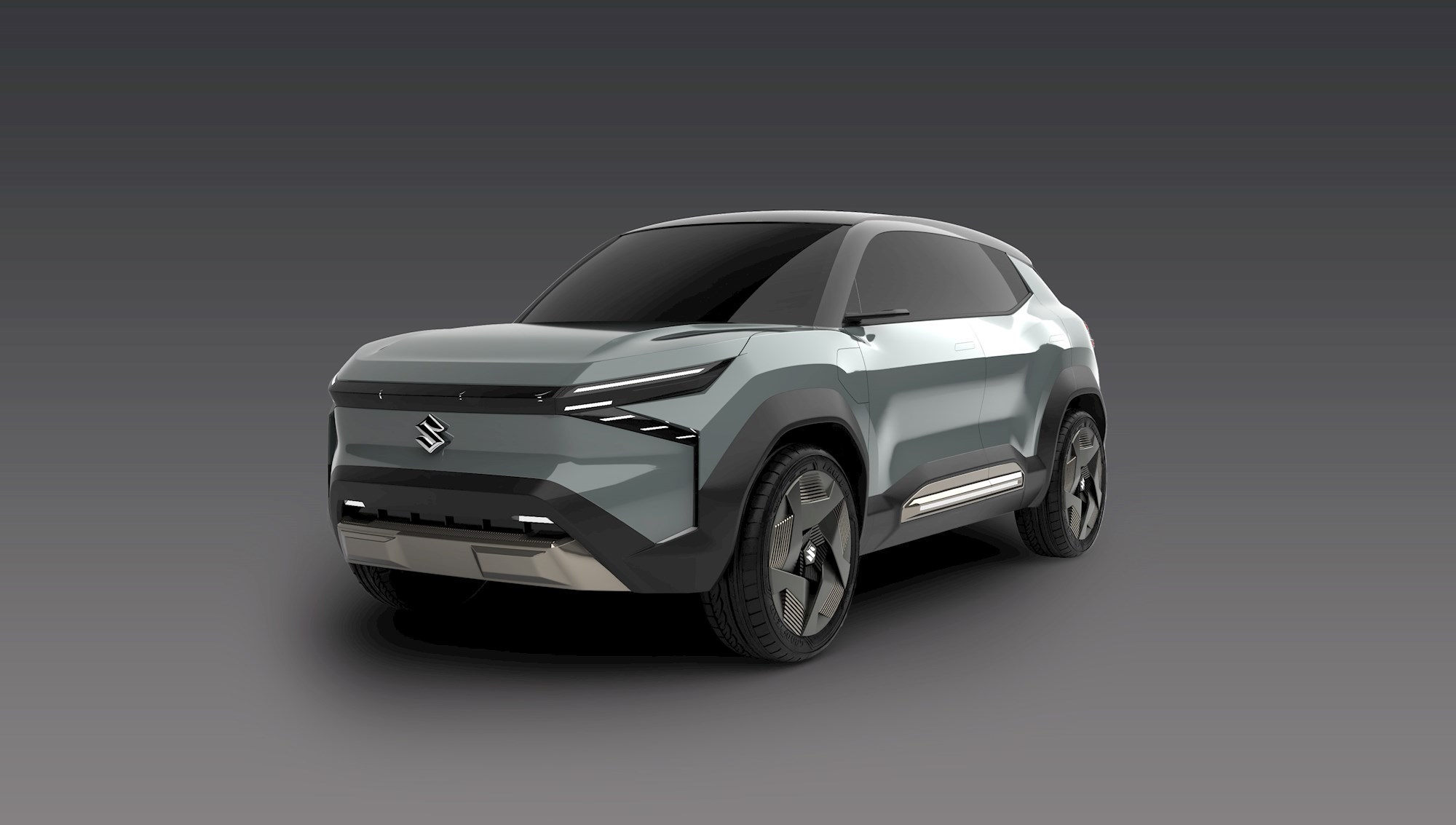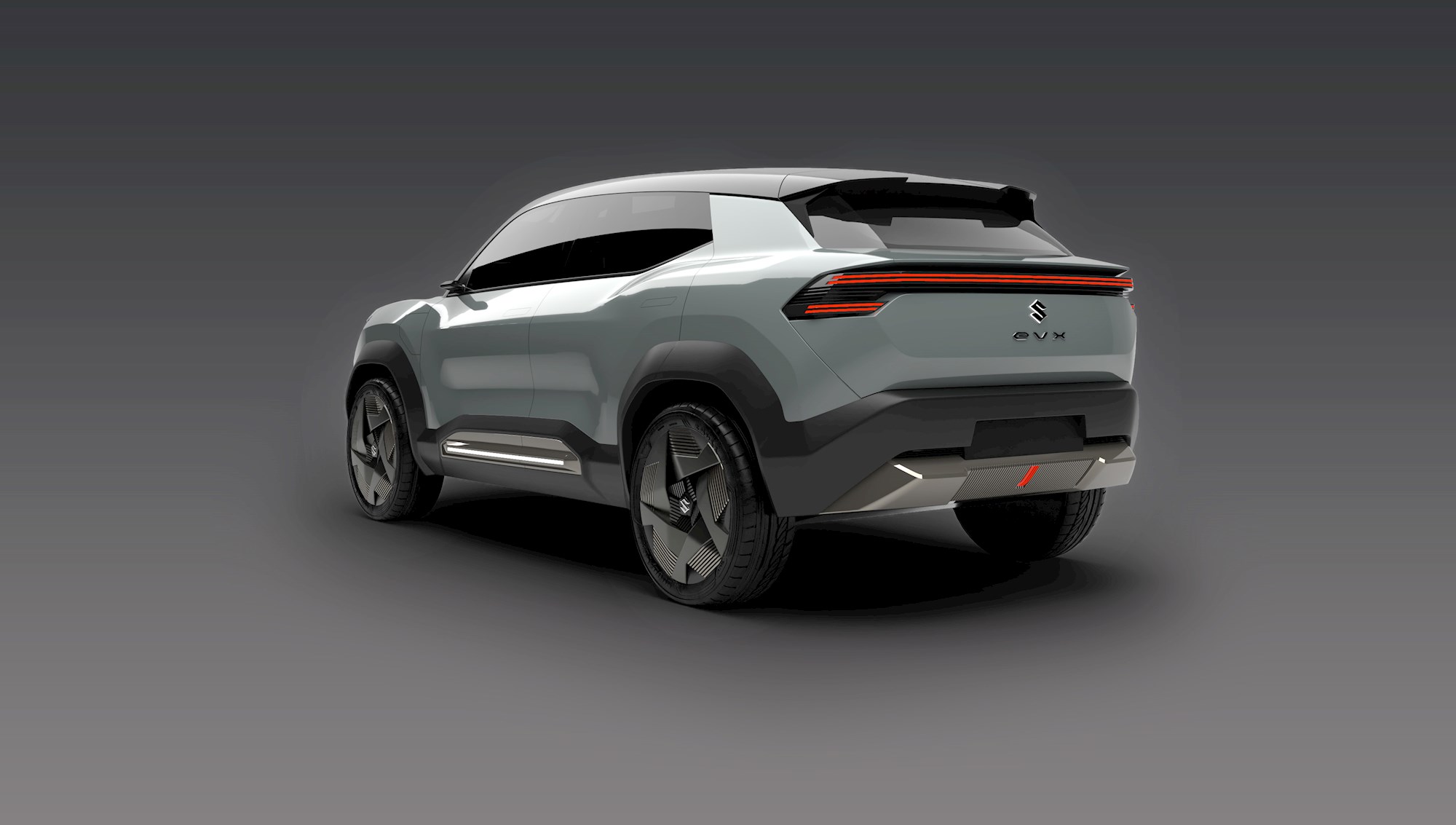Suzuki is finally embracing pure-electric power with an all-new model revealed at Auto Expo, Delhi in India. The eVX is an all-electric concept SUV based on Suzuki’s first "global strategic EV" - therefore foreshadowing a new production car, which the company has confirmed will be introduced by 2025.
Suzuki says the eVX is designed to embody its "strong 4x4 DNA with the advanced features of the latest BEVs. The exterior is designed to be instantly recognisable as a Suzuki SUV".

In a press briefing at Auto Expo, company president Toshihiro Suzuki said: "I am delighted to unveil the eVX, our first global strategic EV. At the Suzuki Group, addressing global warming is a priority. We are promoting a range of global measures to reduce greenhouse gas emissions. Suzuki will continue providing valuable products to our customers around the world by optimising them for the way different people live and drive."
The eVX is 4.3m long, making it slightly larger than the current Vitara and equivalent to the latest S-Cross in size. Suzuki says the concept has a 60kWh battery giving a range of 550km in the MIDC Indian driving cycle (which is less demanding than the NEDC or WLTP tests we are more familiar with).
Beyond that, there's little detail on the vehicle. We don't know whether it's two or four-wheel drive, although presumably it would be easy to offer both with a BEV (as Suzuki does with its current SUVs). No images of that "instantly recognisable" Suzuki interior, either.
Plug-in models can't come soon enough for Suzuki New Zealand, which has been vocal about the impact the government's Clean Car Standard (CCS) will have on its current lineup. While Suzuki buyers benefit from Clean Car Discount rebates because most models are very economical, the Standard (which is aimed at car importers) calculates credits and fines according to a combination of CO2 outputs and weight.

So while heavier vehicles get some dispensation, lighter vehicles are facing some real issues. NZ's CCS passenger-car target average for 2025 (when the production version of the eVX is slated to hit global markets) is 113g/km; the most economical Swift is currently 132g/km under the CCS 3P-WLTP and will be expected to do even better with the adjustment for weight, otherwise substantial fines will be applied. So it's clear that BEVs are essential to the product plan.
The eVX was displayed by India's Maruti Suzuki, in which Suzuki Japan has a controlling stake; the company has over 40 per cent of the Indian market.
Maruti had planned to introduce a pure-electric version of the WagonR in India in 2021 (which have been Suzuki's first pure-electric model), but abandoned the project at prototype stage because it would have been too expensive - around 60 per cent more than the standard car, according to some Indian reports.
Suzuki has ties to Toyota on hybrid/electrified technology, although it's not clear whether there's any Toyota input on the eVX.
Suzuki also recently announced it was working with Canadian company InMotive on a two-speed transmission for EVs. Move over Porsche Taycan?











